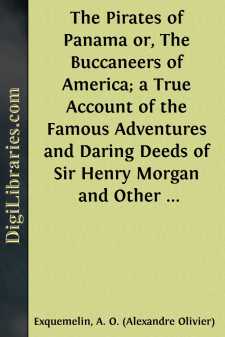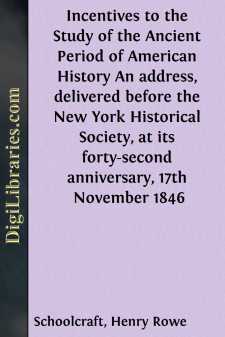Categories
- Antiques & Collectibles 13
- Architecture 36
- Art 48
- Bibles 22
- Biography & Autobiography 813
- Body, Mind & Spirit 142
- Business & Economics 28
- Children's Books 17
- Children's Fiction 14
- Computers 4
- Cooking 94
- Crafts & Hobbies 4
- Drama 346
- Education 46
- Family & Relationships 57
- Fiction 11829
- Games 19
- Gardening 17
- Health & Fitness 34
- History 1377
- House & Home 1
- Humor 147
- Juvenile Fiction 1873
- Juvenile Nonfiction 202
- Language Arts & Disciplines 88
- Law 16
- Literary Collections 686
- Literary Criticism 179
- Mathematics 13
- Medical 41
- Music 40
- Nature 179
- Non-Classifiable 1768
- Performing Arts 7
- Periodicals 1453
- Philosophy 64
- Photography 2
- Poetry 896
- Political Science 203
- Psychology 42
- Reference 154
- Religion 513
- Science 126
- Self-Help 84
- Social Science 81
- Sports & Recreation 34
- Study Aids 3
- Technology & Engineering 59
- Transportation 23
- Travel 463
- True Crime 29
Sort by:
by:
John Galsworthy
QUALITY I knew him from the days of my extreme youth, because he made my father's boots; inhabiting with his elder brother two little shops let into one, in a small by-street-now no more, but then most fashionably placed in the West End. That tenement had a certain quiet distinction; there was no sign upon its face that he made for any of the Royal Family—merely his own German name of Gessler...
more...
by:
Martin Luther
LETTER OF MARTIN LUTHER TO POPE LEO X. Among those monstrous evils of this age with which I have now for three years been waging war, I am sometimes compelled to look to you and to call you to mind, most blessed father Leo. In truth, since you alone are everywhere considered as being the cause of my engaging in war, I cannot at any time fail to remember you; and although I have been compelled by the...
more...
THE HISTORY OF THE APPLE-TREE. It is remarkable how closely the history of the Apple-tree is connected with that of man. The geologist tells us that the order of the Rosaceae, which includes the Apple, also the true Grasses, and the Labiatae, or Mints, were introduced only a short time previous to the appearance of man on the globe. It appears that apples made a part of the food of that unknown...
more...
INTRODUCTION This volume was originally written in Dutch by John Esquemeling, and first published in Amsterdam in 1678 under the title of De Americaeneche Zee Roovers. It immediately became very popular and this first hand history of the Buccaneers of America was soon translated into the principal European languages. The first English edition was printed in 1684. Of the author, John Esquemeling, very...
more...
by:
Otto Schoenrich
PREFACE It is remarkable how little has been written about the Dominican Republic, a country so near to our shores, which has for years had intimate commercial and political relations with our country, which is at present under the provisional administration of the American Government, and which is destined to develop under the protection and guidance of the United States. The only comprehensive...
more...
by:
Grant Allen
CHAPTER I. ELMA'S STRANGER. It was late when Elma reached the station. Her pony had jibbed on the way downhill, and the train was just on the point of moving off as she hurried upon the platform. Old Matthews, the stout and chubby-cheeked station-master, seized her most unceremoniously by the left arm, and bundled her into a carriage. He had known her from a child, so he could venture upon such...
more...
by:
John Jones
CLONARD is situate about Twenty five miles from Dublin on the Western road leading to Mullingar. Tho' constituted a post town, it is a very small village, consisting of an Inn and a few thatched houses; but from its situation being on the confines of two counties, Kildare and Meath, and having a bridge across the river Boyne, which opens a communication from Dublin to Westmeath, and from thence to...
more...
by:
Oliver Optic
CHAPTER I. IN WHICH PHIL HAS A TALK WITH HIS FATHER, AND REVIEWS HIS PAST HISTORY. "I must go to Chicago, father," said I, one evening, after we had been discussing our domestic relations with more than usual earnestness. "Why go to Chicago, Philip? What put that idea into your head?" replied my father, with a kind of deprecatory smile. "I don't feel as though I could live any...
more...
by:
Leslie Stephen
OPINIONS OF AUTHORS Libraries are as the shrines where all the relics of the ancient saints, full of true virtue, and that without delusion or imposture, are preserved and reposed.—Bacon, Advancement of Learning. We visit at the shrine, drink in some measure of the inspiration, and cannot easily breathe in other air less pure, accustomed to immortal fruits.—Hazlitt's Plain Speaker. What a...
more...
AN ADDRESS. To narrow the boundaries of historical mystery, which obscures the early period of the American continent, is believed to be an object of noble attainment. Can it be asserted, on the ground of accurate inquiry, that man had not set his feet upon this continent, and fabricated objects of art, long anterior to the utmost periods of the monarchies of ancient Mexico and Peru? Were there not...
more...











